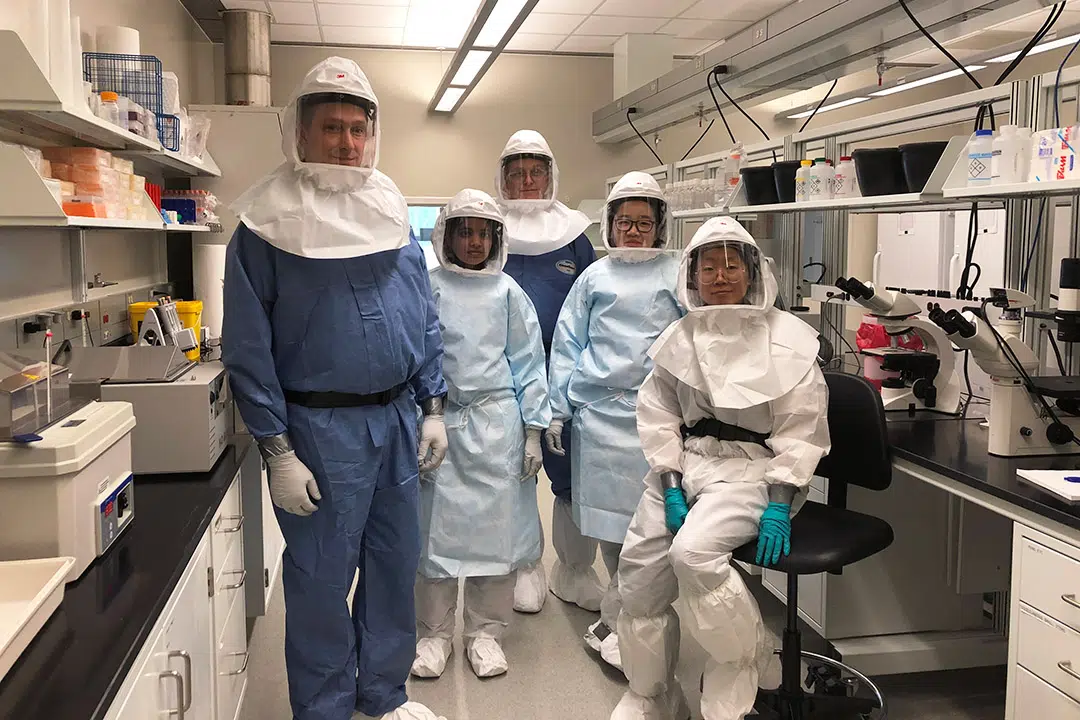The results from the COVID-19 vaccine trials at the University of Saskatchewan’s VIDO-InterVac research lab using ferrets has hit a new and positive milestone.
According to the centre’s director, Dr. Volker Gerdts, teams were able to demonstrate that the ferrets were protected from the disease and specifically showed significantly reduced viral infection in the respiratory tract.
“That is of particular importance,” explained Gerdts. “It not only speaks to the severity of the disease, but also the ability of the animals to infect others.”
Ferrets were chosen for the study because of their similarity to human respiratory systems.
Several weeks ago, two doses of vaccine were given to the animals. Time was needed to then assess their immune response against a control group.
So how effective exactly is the vaccine so far?
“In the vaccinated animals — the ones that responded to the vaccine — we saw almost undetectable amounts of virus afterwards,” says Gerdts. “So that’s very good news, and in comparison to the control group per swap … this is a range in a 50,000-fold reduction of it.”
All of the ferrets that were infected received what Gerdts says is a “high” dose, or one million particles of the disease. Depending on exposure levels, it’s not even in the range of what a human would be exposed to, even with a high “virus shedder.”
Data on the lungs of the ferrets is still being analyzed, but initial results indicate a very high immune response as well as high levels of neutralizing antibodies. It does not appear as though any other organs were affected by the virus either.
At this point, Gerdts says the lab is now in the midst of producing clinical grade vaccine doses that can be used in humans. He calls it the most time-consuming part of the vaccine development.
In the meantime, employees also are conducting safety studies, which are required by regulators to essentially move on to human trials.
“In these safety studies, we’ll address whether there’s any unwanted effects or any adverse events to the vaccine. And also with this particular disease there is concern about what is called ‘disease enhancement,’ where the vaccine would actually enhance the disease,” Gerdts says. “So there’s particular studies that will help us to rule out that our vaccine will do that.”
Gerdts admits there is some concern that certain vaccines being developed currently may actually make the disease worse. It happened when a vaccine was developed for the virus that causes Dengue Fever several years ago.
“The technology that we have chosen is one that has a very well-proven track record in humans and animals … and the advantage of that is that it’s easily ‘scalable,’ ” he said. “So at the end, we can produce millions of doses in a single run in a manufacturing facility.
“So while maybe it’s a bit slower at the moment, the advantage of our vaccine will be that it’s easier to scale and more cost effective.”
If all goes well, human trials are scheduled to begin in the fall.
“This is a vaccine made by Canadians for Canadians,” Gerdts says. “So we will make sure that our vaccine is available to Canadians at the highest priority.”











